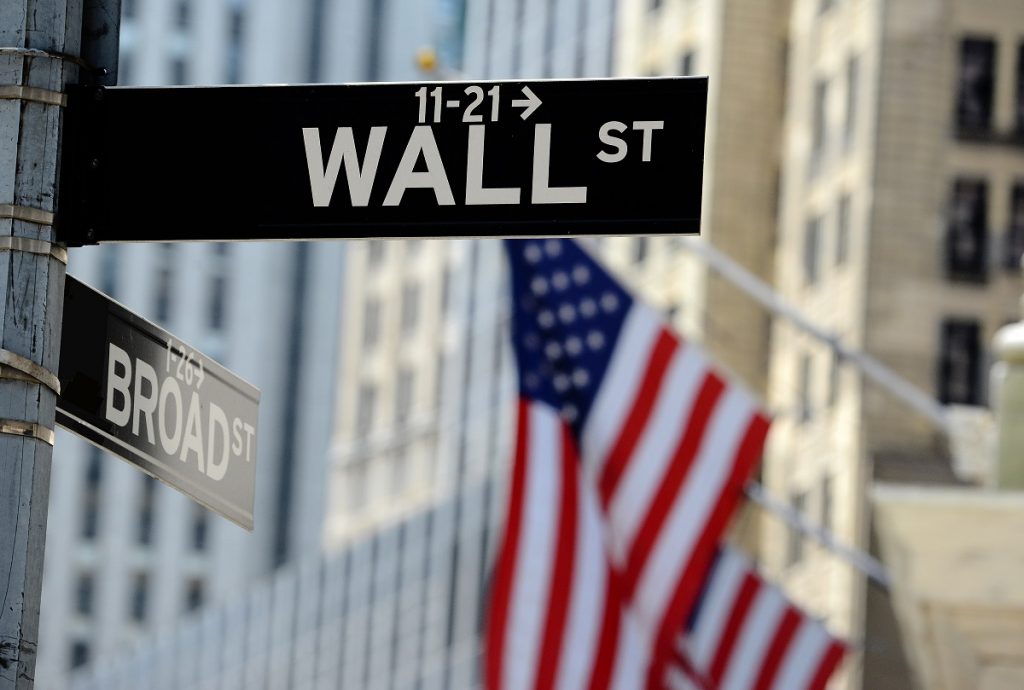I read Samuel Gregg’s recent article, “First Things and the Market Economy,” with qualified admiration. Gregg writes in response to R.R. Reno, who recently published an article critical of the late Michael Novak’s defense of capitalism and liberal institutions. Gregg’s aim is to defend markets (and Novak) against Reno’s “seriously flawed” approach and to offer a justification of capitalism palatable to conservative Christians.
Gregg’s attempt to defend markets has convincing elements, but is undermined by several tendentious points. I agree with Gregg’s contention that we are very far from enjoying free markets today, and that the government is altogether too friendly with outside interests. Indeed, I wish he had stressed this point more consistently. I am also sympathetic to his criticisms of relativistic philosophies, albeit for different reasons. But outside of that I think there are serious flaws to his analysis. I will focus on two.
The first is Gregg’s unwillingness to see that the overly regulated, government-intensive system he despises is not the opposite of capitalism. It is what capitalism looks like in practice. The second is Gregg’s unconvincing attempt to lay the blame for social transformation at the feet of philosophers, theologians, and intellectuals rather than markets. I think this seriously overstates the power intellectuals have over social attitudes, while ignoring the immensely greater power of capital.
Gregg’s Argument
Start your day with Public Discourse
Sign up and get our daily essays sent straight to your inbox.Gregg takes issue with Reno’s claim that free markets have prevailed across the West, pointing to steep tariffs and onerous government regulation. Although Gregg admits that many of these protectionist measures are due to economic actors’ influence on government, strangely, the rest of his analysis ignores this point. Consistently invoking the authority of Adam Smith, Gregg claims that “government and citizens have to opt” for a free market system without mercantilist cronyism. The assumption seems to be that, out of some moral failure, most citizens and government officials choose not to do anything about it.
Gregg then moves on to discussing “liberal institutions” and other features of American civic society that engender support for free markets. He criticizes Reno for pinning blame for collapsing morals on these institutions and the markets they support.
Much of Gregg’s criticism flows from his defense of Michael Novak, the famous Catholic theologian whose Spirit of Democratic Capitalism has enjoyed a renaissance of interest due to its (qualified) support of capitalism and liberal institutions. Reno criticized Novak for supporting liberal capitalism’s dynamism, alleging that this dynamism has led to a gradual destabilization of social life across the West. But Gregg’s contention is that Novak was well aware of this argument, and nonetheless maintained that liberal institutions and capitalism were not to blame for destabilization. Instead, Novak believed that American’s “underlying philosophy of life” was responsible for social destabilization.
Here, Gregg goes beyond Novak in establishing a direct villain responsible for preaching this false gospel. It is “philosophers, theologians, and intellectuals—not merchants” who are responsible for society’s woes. To add a further specter of menace, Gregg invokes Keynes’s famous remark about most practical men ultimately being “slaves of some defunct economist.” These corrupters of the youth are apparently the individuals responsible for propagating relativism and nihilism in our society. Given this, it is no surprise that Gregg’s solution to these woes is to leave the economic order more or less unchanged, while promoting a shift in our intellectual and spiritual attitudes.
Adam Smith and the Limitations of Capitalism
Gregg’s argument for ever more economic liberalization strikes me as deeply idealistic. Indeed, Gregg—for all of his invocations of Adam Smith—ignores important features of Smith’s writing.
In truth, Smith often seems to come down closer to Reno’s concerns about the corrupting power of wealth than Gregg acknowledges. In his Theory of Moral Sentiments, Smith is deeply critical of the human propensity toward greed, envy, and reverence for wealth. He consistently points out that the all-consuming drive to acquire more material goods deeply undermines our capacity for virtue. In his words,
This disposition to admire, and almost to worship, the rich and powerful, and to despise or, at least, neglect persons of poor and mean conditions, though necessary both to establish and to maintain the distinction of ranks and the order of society, is, at the same time, the great and most universal cause of the corruption of our moral sentiments.
This suspicion of wealth and of those who earn it persists in the Wealth of Nations. Gregg’s reading of Adam Smith is curiously one-dimensional. We get the Smith who criticized mercantilism and mocked the governments of the day for supporting it. But we get none of Smith’s criticism of monopolistic practices, none of his claims that businesses themselves were often behind pushing government to adopt mercantilist and protectionist policies. We certainly get very little of the Smith who argued that the division of labor reduced humankind to cogs in a machine, or who felt that government might have a substantial role to play in ameliorating the plight of those left behind by markets by providing better education that would foster higher living standards.
This is not to suggest that Smith was some kind of closet Keynesian. But his understanding of capitalism and its relationship to free markets was complex and continuously critical. And this is a key point. Gregg seems to assume that real capitalism, if left unbridled, would not produced the kind of cronyism and protectionism seen today. He blames government and citizens for “opt[ing]” for policies that inhibit the realization of real capitalism and free markets. But Smith would never accept that, and neither should we.
What Gregg fails to see is there is no “real capitalism” or “real free markets” that citizens and the government have failed to realize. There is a strange comparison one can make here with those Marxists who claim that “real Communism” was never given a chance in the Soviet Union. What was never recognized was that Soviet Communism was real communism—communism as it looked in practice. In the same vein, the protectionist society we live in is what real capitalism looks like in practice. As Smith knew, profit-minded firms use every trick they can, including pushing for government intervention and protection, to pursue their self interest.
This is why both good government and a robust set of inculcated moral virtues are necessary to guard against monopolization. For Smith, markets are only as good as the friends they keep.
Treason of the Intellectuals?
This brings me to my second point. Gregg claims that liberal institutions and capitalism are not to blame for the growth of relativistic philosophies, social destabilization, and nihilism. Instead it is philosophers, theologians, and intellectuals who promote this deficient “philosophy of life.”
I find this deeply implausible (I say this as a former teaching assistant who often found it difficult to get students to read ten pages a week, let alone inculcate in them a particular philosophy of life). Gregg is clearly not alone in emphasizing philosophy as a primary social determinant; many other philosophers, theologians, and intellectuals have written histories that placed their own activities in center stage. One can think here of the vulgar Hegelian contention that history was driven by a conflict of ideas, or Heidegger’s modern argument that the Second World War was ultimately driven by metaphysical forces. Gregg falls squarely into this pattern. Indeed, in many ways, he seems to accept Keynes’s contention that most of us think the thoughts promoted by “defunct” intellectuals.
It can be very tempting for conservatives to cast stones at such figures. It makes the solution to the social problems of relativism, social destabilization, and nihilism seem easy: simply replace intellectuals who have a deficient “philosophy of life” with another group. But this is a little too easy, and again, one-dimensional. Most philosophers, theologians, and philosophers are like everyone else. They are primarily shaped by the social forces of their time and tend to approach their jobs with workmanlike commitment rather than deep reflection or passionate commitment. In other words, they are mostly products of the economic system that employs them.
As Max Weber and Joseph Schumpeter knew, capitalism is not some socially neutral economic force that lies outside of society, helping produce the goods necessary for its preservation. Nor are liberal institutions truly neutral in their approach to different worldviews, including religious worldviews. Capitalism and liberal institutions are tremendously powerful social forces that operate both with and through the individuals who engage in economic and political activity. One of their primary features is the continuous revolution in values: the need to create new commodities and economic interests that will encourage people to spend money and consume.
This is why capitalism and liberalism will always tear down traditional ways of life. Because they tend to be more static, such ways of life are simply not given to incessant commodification. As Weber pointed out, a blacksmith knows his task in life and doesn’t tend to deviate from it. A capitalist must always seek to find new avenues for wealth maximization, and if none exist, to create them from scratch. The impact of this is also seen in the technologies we use to express our “individuality” (which often comes across looking more like atomistic self-interest than anything authentic).
Suffice it to say, while I think Gregg has offered a valuable contribution, his analysis is flawed on these two important points. As a result, we should reject his appraisal of capitalism as being overly optimistic and charitable. Capitalism in practice differs from the rosy theoretical picture he gives, often undermining the social stability and values Gregg so cherishes. This is why social conservative Christians should indeed start to be far more wary of capitalism, and look more closely at its often worrying flaws.













